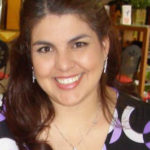
Teaching Opportunities through Discovery in Science – Podcast Episode 34 | Podcast Episode 34
Podcast: Play in new window | Download
Classnotes Podcast (May 19, 2008) Teachers actually can strengthen science learning by not giving students the answers. Discovery learning supports and promotes an inquiry-based learning method where children explore questions about the natural world they create using their own knowledge and experience.
Veronica Betancourt , M.A., an IDRA education associate and developer of IDRA’s Science Smart! model, discusses how letting students of all ages facilitate their own learning through discovery to make science more meaningful to them. Veronica is interviewed by Bradley Scott, Ph.D., director of the IDRA South Central Collaborative for Equity.
Send comments to podcast@idra.org
Show length: 21:47
Resources
Teaching Methods – Discovery Learning
By Apple Learning Interchange
Great Web Sites for Kids
American Library Association
Covers a many areas of content, including a host of science links for parents and educators.
Strange Matter
Site offers opportunities for children to explore what things are made of. It has great visuals and reinforcement of reading through short dialogues. (Also plays sound when you arrive at the site.)
Schlumberger Excellence in Educational Development
Site offers opportunities for critical thinking through its engineering and math challenges. It also offers opportunities to communicate with professionals in the community as well as other children across the world.
Helping Your Child Learn Science
U.S. Department of Education (free)
This booklet provides parents of children ages 3 through 10 with information, tools and activities they can use in the home and community to help their child develop an interest in the sciences and learn about the world around them.
Eager to Learn: Educating Our Preschoolers
National Research Council
Taking Science to School: Learning and Teaching Science in Grades K-8
Committee on Science Learning, Kindergarten through Eighth Grade, Academy of Sciences
By looking at a broad range of questions, this book provides a basic foundation for guiding science teaching and supporting students in their learning.
“Guided Inquiry in the Science Classroom”
Chapter 11 of the book, How Students Learn Science in the Classroom
National Academy of Sciences
Your feedback
We welcome your comments and questions to the podcast. Please send an e-mail to podcast@idra.org.
Listen to every episode!
To ensure you don’t miss a single episode of IDRA Classnotes, subscribe to the podcast in iTunes, (download iTunes free if you don’t have it) or sign up to receive an e-mail alert as soon as a new show is published.




